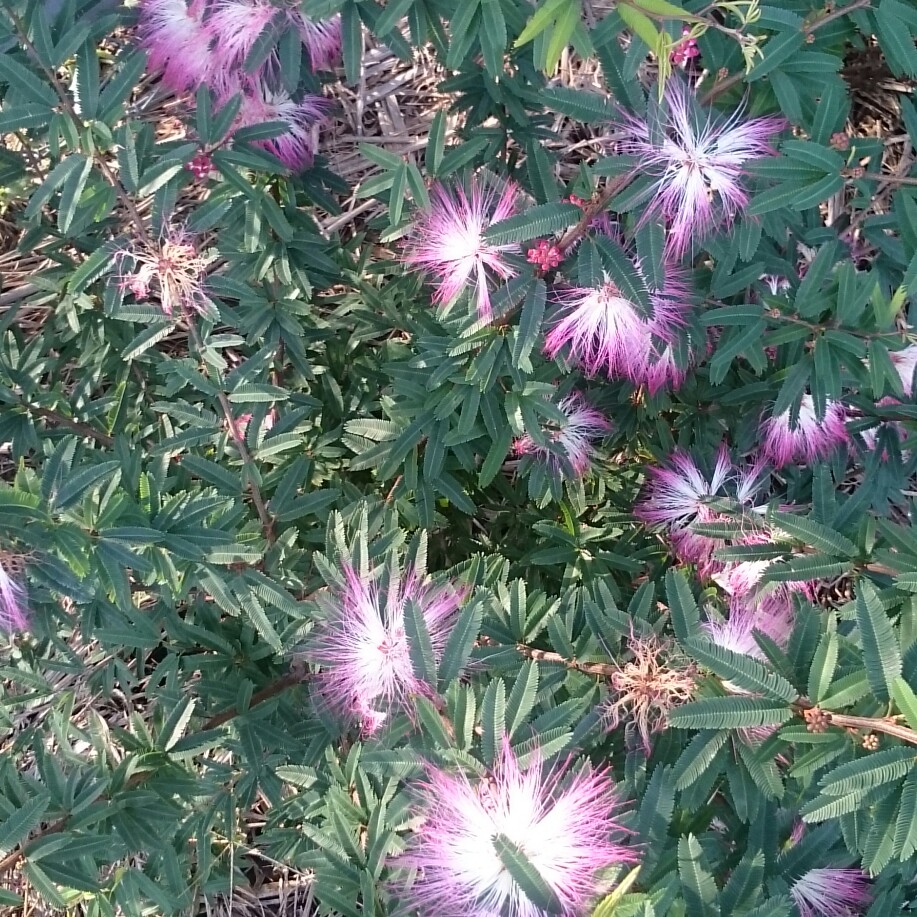
Calliandra surinamensis 'Pink Poodle'
Pink Powder Puff
Showy pink flowers, like a powderpuff, made up of long slender stemans which are bright pink at the tips and white at the base.The plant has evergreen bipinnate, oblong leaves. Surinam powder puff is a fast grower.This plant is cultivated for its ornamental purposes and can also be used for bonsai.
Contributed by @willy23
-
Full sun to partial shade
-
Occasional watering
-
A little frost hardy: 32F (0°C)
-
Moist and free draining
Common name
Pink Powder Puff
Latin name
Calliandra surinamensis 'Pink Poodle'
type
Flowering plant
family
Fabaceae
ph
6.0 - 7.5 Acid - Neutral
Plant & bloom calendar
-
Best time to plant
full grown dimensions
 3.00 M
3.00 M
3.00 M
3.00 M
Calliandra surinamensis 'Pink Poodle'
Showy pink flowers, like a powderpuff, made up of long slender stemans which are bright pink at the tips and white at the base.The plant has evergreen bipinnate, oblong leaves. Surinam powder puff is a fast grower.This plant is cultivated for its ornamental purposes and can also be used for bonsai.
Planting for indoor plants
From Early Spring TO Early Spring
If you live in an area where the Powder Puff tree isn't hardy, you will have to grow it in a large planter and move it back indoors during the winter. If space in your home is limited, you should consider growing a dwarf variety of the Powderpuff tree, which can be easily managed as a 2-3 foot plant by careful pruning. Indoors, Calliandra needs bright light to full sun, fairly high humidity and an average room temperature of 60°-75°. If the lack of humidity is a problem, you can set the planter on a tray filled with moistened pebbles.
Planting Outdoors Spring
From Early Spring TO Early Spring
Calliandras grow and flower best if they are grown in full sun, but they tolerate some partial shade, especially in hot summer regions. They should be planted in reasonably fertile, moist but well-drained soil with a pH of 6.0-7.5. Powder Puff plants should be watered regularly and thoroughly to maintain evenly moist soil, especially during the summer growing season. Continuously wet conditions should always be avoided. Well established plants can tolerate occasional periods of drought.













